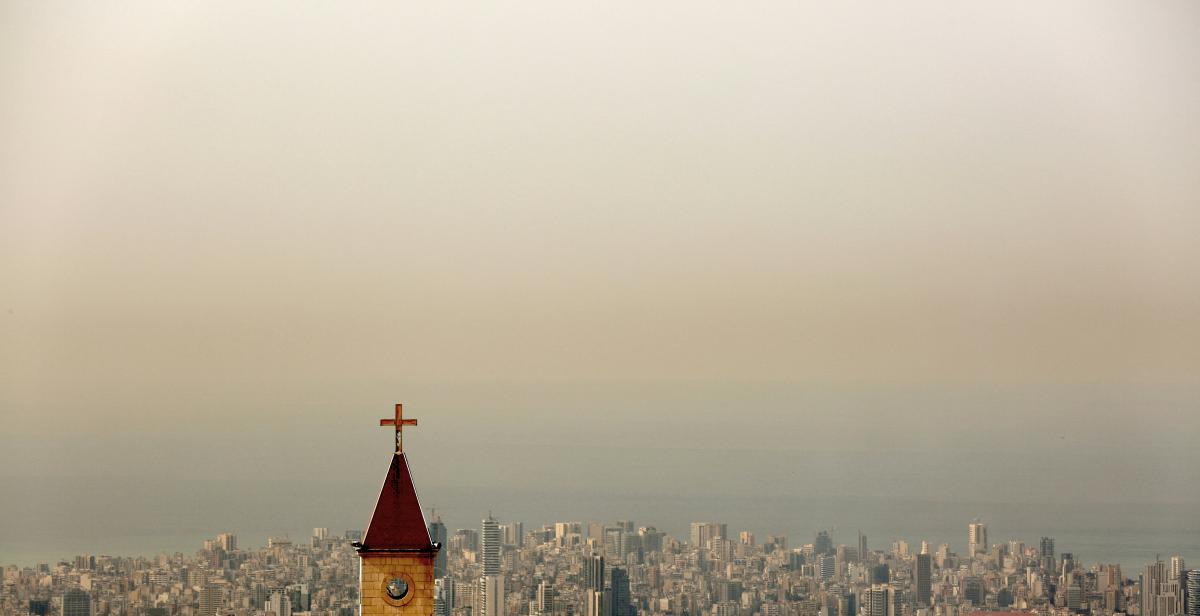It is true that at the forefront of Lebanon’s political scene today stands a Maronite president, a Maronite army commander, a patriarch whose positions often spark reactions, as well as Maronite party leaders, deputies, ministers, and influential figures. Yet, the deeper truth is that the Maronite community has, for three decades, been in retreat on the Lebanese stage, a decline driven largely by two main factors: the civil war of 1975 and its aftermath, and the fierce Maronite–Maronite disputes.
This unusual chapter of history must not become the norm. It should remain an exception, a lesson to be studied and learned from, to build a brighter future, Maronite and therefore Lebanese. For the active Maronite presence in this region remains, despite everything, the fundamental guarantee and steady pillar of Lebanon’s survival. Lebanon, like the Maronites themselves, is an indispensable necessity for its environment and the world. To allow its role to fade, or to contemplate abandoning this homeland for another, would be a grave mistake.
The Maronites, from the very beginning of their 1,600-year history, have clung to religious, human, ethical, and intellectual values and demonstrated leadership across every field. Maronitism, as a spiritual and cultural identity, is greater than any one individual, no matter how high his rank, whether religious or worldly.
Today, more than ever, the Maronites are called upon to reassess their experience, clarify their positions, reconsider their conduct and policies, and define their goals, both declared and implicit. They must recognize that their homeland, their heritage, their existence, and everything their ancestors and descendants have achieved at home and abroad cannot endure unless shared with others, at a minimum through dialogue, consent, and reasonable compromise.
Pope John Paul II captured this truth in his apostolic exhortation A New Hope for Lebanon, when he described the country as “more than a nation, it is a message.” And as Lebanon awaits the visit of Pope Leo XIV later this year, that message deserves to be reaffirmed. But today, the foundations of Lebanon’s fragile entity are shaken by disputes, emigration, frustration, and the illusion of excess power. There is no alternative geography to this land, a crossroads of civilizations, religions, and values.
Much of Lebanon’s imbalance has stemmed, and still stems, from a lack of understanding among the Maronites themselves. Yet Christianity, and Maronitism within it, rests on love, forgiveness, acceptance of the other, openness, and dialogue. It is a faith that upholds the dignity of the human being, regardless of ethnicity, religion, or belief. The Maronite presence in Lebanon is no accident; it is an organic bond of three elements, man, land, and freedom, each indispensable to the other.
Guided by the spirit of Christ’s teachings and the Gospel’s light in this new millennium, inspired by the example of the popes who resisted rigidity, fanaticism, and authoritarianism, and mindful of the need to preserve a place for ourselves under the sun, I propose the following Maronite Charter:
1- Spiritual and Historical Identity: To reaffirm our Maronite essence, spiritually, as heirs to Saint Maron, the hermit who lived the Gospel in simplicity, devotion, and courage; and historically, as part of the Syriac Antiochene heritage deeply rooted in Lebanon’s identity and values.
2- Continuing the Maronite Mission: To revive the Maronite mission that has accompanied the Lebanese entity in all its stages, particularly since its establishment as a modern state, and to reclaim, collectively, our pioneering role alongside our fellow citizens.
3- Unity of Community and Nation: To recognize that when the Maronite community fractures and falters, Lebanon’s entity weakens. But when it unites and acts with resolve, Lebanon rises and recovers.
4- Political Diversity, Common Interest: To uphold every Maronite’s right to political choice, while ensuring that all views, however divergent, ultimately serve the Maronite and national interest. Disputes, when they arise, should be managed under the umbrella of the Maronite Patriarchate, avoiding deeper rifts until a solution is found.
5- The Nation as a Message: To embody Lebanon’s role as a “message” through genuine citizenship, rejecting hypocrisy and duplicity.
6- Unity of Clergy and Secularism: To return to the spirit of the early Maronite Church, where clergy and secularism formed one cohesive, harmonious community.
7- Public Office as Service: To consider every position, religious or secular, not as an honor, but as a responsibility and a duty of service, in the spirit of Christ’s words: “Whoever among you is greatest, let him be your servant.”
8- Harnessing Collective Strength: To pool Maronite talents in all fields and spread Maronite culture among all Lebanese, reviving the motto: “A Maronite is a scholar.”
9- Global Maronite Institution: To establish a worldwide Maronite institution tasked with documenting the diaspora, reconnecting with expatriates, and channeling their energies into economic, social, and educational development in Lebanon, within a broader framework that includes all Lebanese abroad.
10- Saintly Heritage: To highlight our three canonized saints and two blesseds of this era, affirming that our land remains fertile with holiness, producing saints and righteous men and women.
These words are addressed to all Maronites, leaders and ordinary people alike.
The question remains: who will answer the call?
Please post your comments on:
[email protected]
 Politics
Politics







